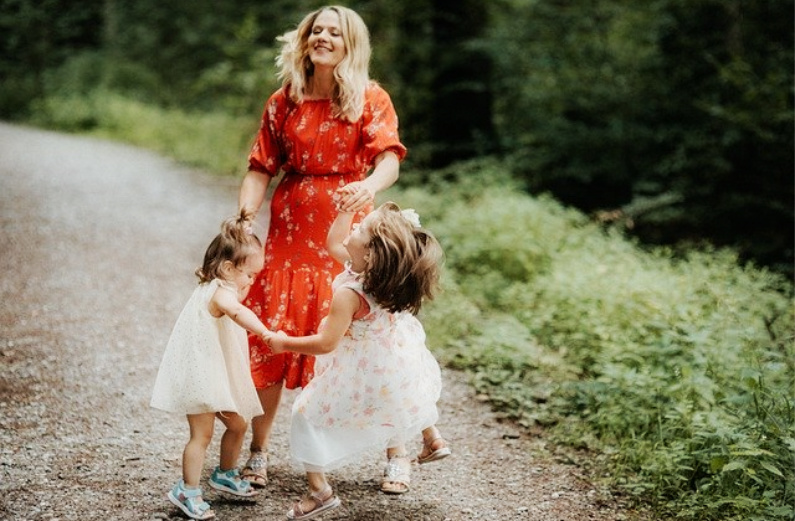This week we will have a special guest writer. She has incredible insight that all those who work with kids with autism need to know. So I got her permission to share it with you. “How not to gaslight autistic kids” by autisticempath.com.
Some very dear friends of mine have a daughter in elementary school who has recently been diagnosed with autism. It took them several years of dealing with emotional dis-regulation, anxiety, outbursts, and fighting to get to this point and now they’re adjusting and trying to learn how to do the best they can for her. I’ve offered some of the same advice you’ll see throughout the autistic community – make sure you don’t gaslight her or deny her experience. But that brought up a question: “Where’s the line between correcting and gaslighting? Do we just let her define the experience incorrectly?” A loaded question, to be sure. So here’s what I want to tell parents about how not to gaslight autistic kids.’
FIRST, CHANGE YOUR MINDSET
 First things first, leave off that idea of a “correct” interpretation of an experience. There’s no such thing. If you are a non-autistic or neurotypical parent of an autistic child, your child’s senses are different than yours.
First things first, leave off that idea of a “correct” interpretation of an experience. There’s no such thing. If you are a non-autistic or neurotypical parent of an autistic child, your child’s senses are different than yours.
Autism is a difference in neurology – we’re literally wired differently than NTs. Our senses work differently, which is why we stim, why we show sensory-seeking or sensory-avoidant behavior, and why we get overwhelmed. It’s why we love certain textures and hate certain smells, and why we insist on our samefoods that we know and love. Our senses are amplified in ways we can’t fully explain to you because we don’t know your experience of living with NT senses.
We don’t understand how you’re not bothered by the sound of fluorescent lights or how you can stand strongly flavored mint toothpaste, but we generally don’t go around telling you you’re wrong for it.
WORDING IS SO IMPORTANT
 The difference between correcting and gaslighting is the difference between telling a child with a scraped, bleeding knee “You’re ok, you just need a band-aid” and telling them “That didn’t hurt”. One of those statements is an outright lie.
The difference between correcting and gaslighting is the difference between telling a child with a scraped, bleeding knee “You’re ok, you just need a band-aid” and telling them “That didn’t hurt”. One of those statements is an outright lie.
Scraping your knee most certainly does hurt, and if you tell a child it didn’t, that’s gaslighting. But they are ok, even though it hurts, and when you tell them that and help them through the steps of how to handle it (wash the wound, get a band-aid, maybe also a kiss), you’re teaching them how to deal with future scrapes and bruises.
One accepts the experience and helps the child become more independent in the future. The other tells the child that their experience/pain/distress is NOT REAL.
I cannot overstate how important word choice is when communicating with an autistic person. Because we are so literal, if we say something like “this water is too hot” and get told “no it’s not”, we hear You are wrong and your experience is flawed.
Over time, hearing that enough teaches us that we must not trust our senses, even if it’s painful. This is dangerous. This leads to kids not telling their parents when they have an abscessed tooth or never mentioning that their shoes are too tight until they have badly ingrown toenails because they figure everyone goes around in pain but nobody else ever complains.
 Autistic children will still know that they’re in pain or bothered by some kind of sensory input, but they will assume that it’s normal and that everyone just puts up with it. So they’ll go about their life in pain because they were told often enough that it didn’t actually hurt. That’s a breeding ground for meltdowns in the short term and abusive relationships in the long term.
Autistic children will still know that they’re in pain or bothered by some kind of sensory input, but they will assume that it’s normal and that everyone just puts up with it. So they’ll go about their life in pain because they were told often enough that it didn’t actually hurt. That’s a breeding ground for meltdowns in the short term and abusive relationships in the long term.
Here’s what I suggest instead: First, assume an implied “for me” on the end of everything your autistic child says. “It’s too hot in here (for me)”, “the food is too salty (for me)”, etc. Second, accept whatever they’ve said about a sensory issue as true. It doesn’t matter if you are comfortable with the temperature or you like the seasoning, that has no bearing on how an autistic child is experiencing it. Believe them.
DON’T TRY TO CORRECT IT, HELP THEM DEFINE IT
Don’t try to “correct” their experience – because you can’t. Their experience is their experience and it won’t be the same as yours. But do try to help them learn as many ways to define their emotions and physical sensations as possible.
Lots of autistic people deal with alexithymia, and we often have trouble differentiating between emotional feelings and physical feelings. I’m nearing 40 years old and I still struggle with this, despite having worked on it in therapy and practiced describing these things clearly as a fiction writer.
 Autistic kids have an even harder time with this because they’re still working on not only understanding the language but also understanding and recognizing their own feelings and their bodies. We learn these things slower than other children – don’t assume “they should know by now”. Interoception is a hard skill to master!
Autistic kids have an even harder time with this because they’re still working on not only understanding the language but also understanding and recognizing their own feelings and their bodies. We learn these things slower than other children – don’t assume “they should know by now”. Interoception is a hard skill to master!
So instead of just negating your child’s statement of their experience, give them some options to help them pinpoint their feeling or sensation.
If they say their food is too spicy, ask if they mean it’s spicy or that it’s a hot temperature (I used to mix those up as a kid). Or if there isn’t anything spicy in the food, do they mean it’s too salty? Too much salt at once can affect my tongue much like a jalapeno, it really does burn – but don’t ask me what “too much” salt is, because too much for me might be just enough for you. Anything tangy, like vinegar or citrus, could also be mistaken for “spice”. Even minty things might be called “spicy”. Basically, anything that would hurt if you rubbed it on a papercut.
For an autistic child who says some piece of clothing “feels bad” – well, BadFeel textures are definitely a thing! But it will help them to be able to be more specific, so you could ask if it’s itchy, if it scratches, if the collar is too tight (for me, this means the neckline is too high – I know it isn’t literally tight but it still feels like it’s choking me), if the tag is bothering them, if it’s too tight or too loose, etc.
If none of those get a response, you may just have a BadFeel on your hands, so don’t press the issue. BadFeel textures are like chewing aluminum foil. You can usually identify a BadFeel texture by asking if it’s too smooth, too crinkly, does it make too much noise (I’m thinking of windbreakers – uugghhh!!), is it too fuzzy, too nubbly, etc.
The larger vocabulary an autistic child has to describe and define their feelings and sensations, the better equipped they will be for everything in life.
TEACH THEM WAYS TO DEAL WITH THEIR EXPERIENCES
 Autistic kids will not “grow out of” their sensory experiences. We will always experience the world differently. As parents, the best thing you can do for an autistic child is to teach them ways to cope with their experience of the world.
Autistic kids will not “grow out of” their sensory experiences. We will always experience the world differently. As parents, the best thing you can do for an autistic child is to teach them ways to cope with their experience of the world.
Never assume that an autistic kid is “taking on” (as my mom called it) or making excuses. Presume that they are telling you the truth of what they’re experiencing and help them figure out how to work through it. Sunglasses and ear defenders are easy ways to help a kid who’s sensitive to light or sound and can help them cope with being out in the world. You might need to remind a child to blow on a hot drink before taking a sip. Or if they say the water is too hot to wash the dishes, tell them to add some cold water but explain that they’ll have to scrub more or use more soap to make sure the dishes get clean. Got a scratchy tag? We can’t ignore it, so don’t even bother with that, but tell them that you can cut it out, see if there’s a way you can tuck it away from their skin, or offer to sew a soft ribbon over it. As kids get older, you can introduce them to tagless clothes.
The autistic brain doesn’t always make these connections on its own. Often, we run into a roadblock and we don’t know what to do so we just stop. By teaching your child that there are ways to work around their sensitivities, you’re not only helping them in the moment. You’re teaching them two crucial life skills: how to take care of themselves in a world that isn’t made for them, and to always look for options in any situation where they might get stuck.
It’s not difficult to avoid gaslighting autistic kids. Just accept and expect that they’re telling you the truth and help them work out ways to live in the world anyway. Assume they’re not being malicious and ask them what they meant, offer them options to choose from. I know, having been an autistic kid myself, that we’re not that easy to live with. But I can promise you, your autistic child is doing their best and their best will get better with your support.
This article was previously posted on autisticempath.com it is SO amazing I HAD to share it!
Abby is capable and caring. She is learning more about Autism and parenthood every day. Having completed training to be an RBT (Registered Behavior Technician) for ABA therapy she is beginning to understand her son. And even though she is the first to admit she makes a lot of mistakes, she is so grateful to be on this journey. She comes from a family with many autistic members. She invites us to join her, as she shares her adventures. She wishes to emphasize that Autism is a difference not a defect. If you or a family member have autism, Abby wants you to know that the challenges can be overcome, and there are blessings in autism. You or your loved one are not sick or broken. Together we will teach the world this new language.






